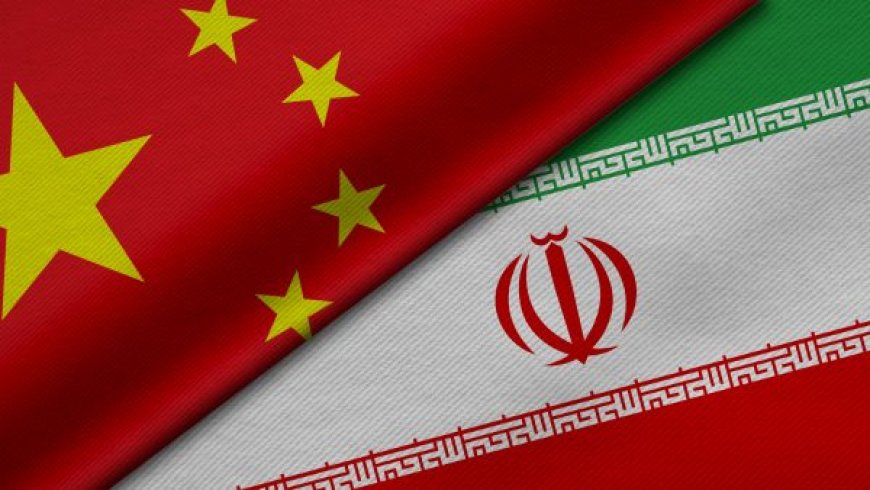Bridging Continents: How Iran-China Alliance Can Redefine Global Power Dynamics
The recent visit of Iran's Foreign Minister to China marks a significant milestone in the evolving alliance between Tehran and Beijing. Amidst a backdrop of profound geopolitical shifts and an increasingly polarized global order this high-level diplomatic engagement holds immense potential to redefine the strategic partnership between the two nations and shape the contours of the international system in the years to come.

By: A. Mahdavi
The recent visit of Iran's Foreign Minister to China marks a significant milestone in the evolving alliance between Tehran and Beijing. Amidst a backdrop of profound geopolitical shifts and an increasingly polarized global order this high-level diplomatic engagement holds immense potential to redefine the strategic partnership between the two nations and shape the contours of the international system in the years to come.
The visit comes at a critical juncture as the region navigates dynamic transformations and the global political landscape remains turbulent under the erratic influence of the U.S. administration. In this context Iran and China both pivotal actors in the emerging multipolar world have a historic opportunity to align their interests and collaboratively address shared challenges.
Iranian Deputy Foreign Minister Abbas Araghchi's optimism about deepening bilateral ties underscores the mutual benefits of elevating the Iran-China relationship to a strategic partnership. This vision while ambitious is both timely and attainable provided that both nations adopt a comprehensive and forward-looking approach to their cooperation. For this to materialize it is imperative to integrate China's economic and security doctrines within a broader geopolitical framework that acknowledges Iran's centrality as a reliable regional power.
China as a rising global power has demonstrated remarkable economic dynamism and technological innovation but its approach to international relations must evolve to meet the complexities of the modern era. Iran with its strategic location resource wealth and resilient diplomatic standing offers China a unique opportunity to extend its influence in Southwest Asia and beyond. Together the two nations can chart a course that enhances their respective positions on the global stage while fostering regional stability and prosperity.
The Belt and Road Initiative (BRI) a cornerstone of China's global strategy can benefit greatly from Iran's active participation. Positioned at the crossroads of Europe Asia and the Middle East Iran provides an indispensable link for the initiative's connectivity ambitions. By strengthening this partnership both nations can counter external narratives that seek to undermine their cooperation. Claims of "debt-trap diplomacy" or the diminishing appeal of the BRI are often propagated by rival powers intent on curbing China's rise. These narratives overlook the enduring potential of collaborative development and the transformative impact such initiatives can have on participating nations.
Simultaneously the emergence of alternative projects like the I-Mac (Indian-Arab-Israeli-European) corridor underscores the urgency for China and Iran to solidify their alliance. The I-Mac initiative clearly designed to challenge China's strategic objectives serves as a reminder of the West's determination to marginalize Beijing from critical regions like the Middle East. Yet these efforts pale in comparison to the potential synergy between Iran and China whose shared vision of economic growth and regional security presents a viable counterbalance to Western-led strategies.
Iran’s proactive diplomatic engagement is pivotal in this context. By articulating a compelling case for deeper integration with China Iran can position itself as a cornerstone of Beijing's regional strategy. This includes highlighting the mutual benefits of collaboration in sectors such as energy infrastructure technology and security while emphasizing the strategic necessity of maintaining a robust presence in Southwest Asia and North Africa.
Furthermore the rapidly shifting dynamics of global power require a recalibration of China’s foreign policy to prioritize strategic partnerships over tactical concessions. Iran’s role as a steadfast ally unburdened by the oscillations of Western influence offers China a reliable partner in navigating these challenges. Together the two nations can forge a cooperative framework that not only advances their bilateral interests but also contributes to a more equitable and multipolar international order.
Araghchi's visit to Beijing is therefore far more than a routine diplomatic gesture—it is a clarion call for a new chapter in Iran-China relations. By aligning their long-term economic and geopolitical goals the two nations can lay the foundation for a partnership that transcends regional boundaries and reshapes the global order. As China seeks to expand its global footprint and Iran asserts its role as a pivotal regional power their alliance has the potential to redefine the parameters of international relations in a way that champions shared prosperity mutual respect and collective progress.
In this moment of profound geopolitical transition; the decisions taken by Iranian and Chinese leaders will reverberate far beyond their borders. Their shared commitment to a strategic partnership will not only strengthen their positions in an increasingly competitive world but also stand as a testament to the enduring power of collaboration in shaping a better future for all.













































